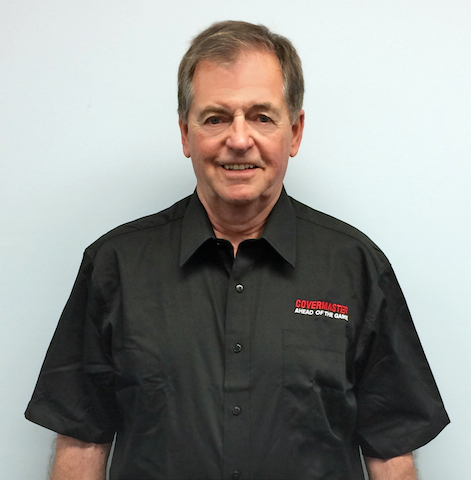This month in “The SportsTurf Interview,” we feature Bob Curry, president of Covermaster, Inc., Ontario, Canada. Bob is a long-time, active member of the Sports Turf Managers Association and a former Board member; in 2007 he received the association’s highest honor, the Harry C. Gill Memorial Award.
SportsTurf: How do you develop relationships with turf managers?
Curry: Involvement with STMA, both on a national and regional level, has greatly enhanced our relationship with turf managers. Nothing beats visiting turf managers in their own environment. Feedback on their issues with products is just as important as suggestions on product improvements. Many items in our product line up were developed from the turf manager’s suggestions. For example, the heavy weight of tarps and rollers was always an issue with minor league teams. We introduced a lightweight material in the early 80s as the first step in making tarp handling a little easier.
Working closely with David Frey, former head turf manager of the Cleveland Municipal Stadium, was a huge breakthrough in tarp handling. David was always working on developing better tarp handling methods. He was one of the first to use plastic drainage pipe for rolling tarps, which was not only lighter in weight than traditional galvanized pipe, but also safer to handle. No sharp edges to cut your hands on. Not only did David’s ideas make tarp handling easier, he went one step further. He designed a tarp roller device that hooked up to the PTO of a tractor. The tarp machine, as it is known, can roll large sections of tarps both across the field and re-roll off the field.
SportsTurf: How do you typically research and develop new products?
Curry: Developing new products is a must to keep up with industry changes. In addition to product testing in the field, we go to the lab to confirm findings. For example, our lightweight tarps are white and silver for a reason. Laboratory testing proved positive that the color white reflected the sun’s rays and heat better than silver. Hence, if you cover your field at night because of rain, you have a longer time span in the morning to remove the tarp if the white side is up. Early morning heat buildup can damage the turf but with the white side up, you have less risk until crews are able to remove the tarp.
SportsTurf: Are there any new technologies you are developing that you can share with us?
Curry: Inflatable tarps with climate controls are the latest project we are working on. Not only can the temperature be controlled under the cover, the cover can be deflated due to high winds or snow load. And it can all done by the turf manager’s telephone from any remote location.
The Minnesota Vikings and Tennessee Titans are both using the system with great results. In fact, Grant Davisson of the Vikings was able to grow grass in Minnesota in December under the cover.
SportsTurf: What are the most important changes you’ve seen in sports turf management during your career?
Curry: Two things stand out that are important changes in the sports turf industry. First, the tremendous growth of the STMA since I joined in 1986. The second is the recognition of the turf managers and the important role they play. Not only in providing safe turf, but all the roles they play in maintaining fields, not only for sporting events, as well as, all the multi-use events. Theirs is not an easy task.
SportsTurf: How has your career benefitted from being a member of STMA?
Curry: As a company, Covermaster has become very successful by working with the turf managers and continued membership in STMA. Being involved as a board member and working on committees makes you more aware of issues the turf industry faces and how we as a company can try and help out.
SportsTurf: How do you think the profession and industry will change in the next 10 years?
Curry: It is difficult to predict the future of the turf industry, for example the introduction of new machinery, turf species and synthetic turf. We will continue to see new developments in all these areas in the future. It will be extremely important for commercial companies to keep up with the constant changes and develop new products that help improve the industry.
SportsTurf: How has social media impacted your work?
Curry: Social media is playing a major role in all industries. With all the means of communication available, nothing is sacred anymore. Answers to turf issues can be found online in the media and face-to-face conversations.
The world is a much smaller place because of social media. As a result, new market areas are developing all the time. There is a great opportunity for North American companies to benefit from social media.


